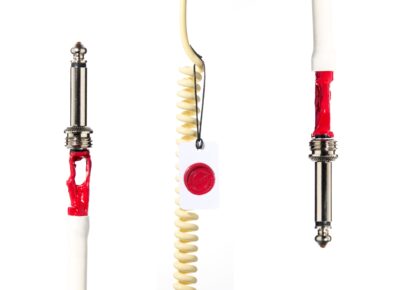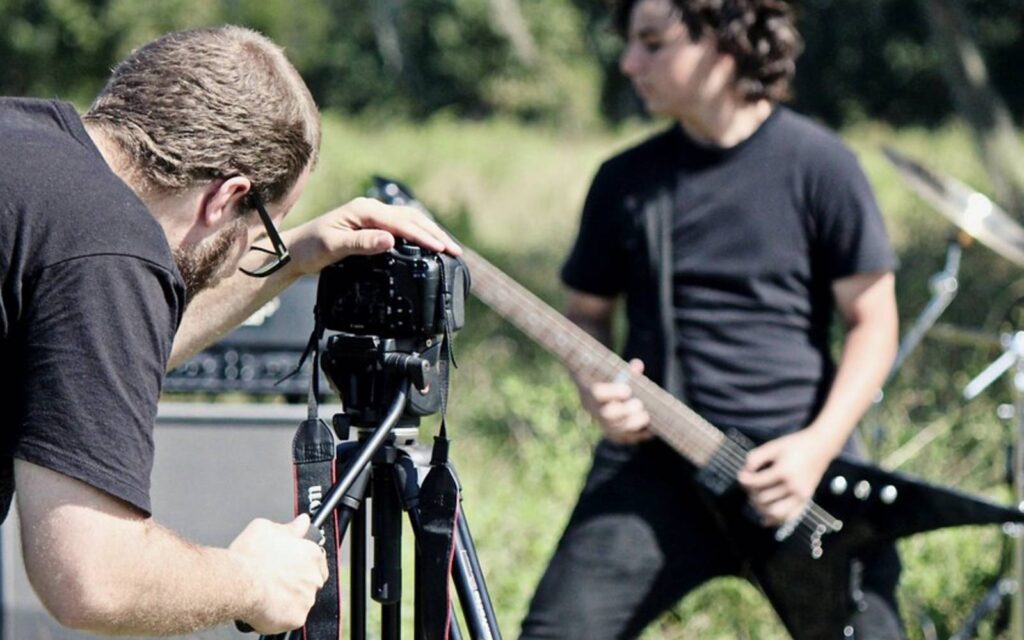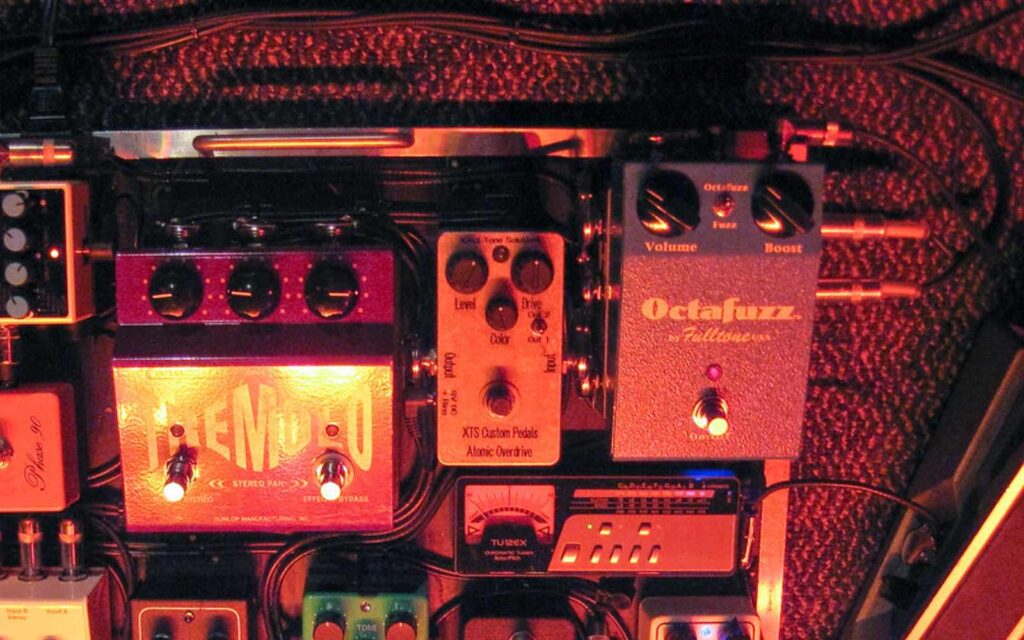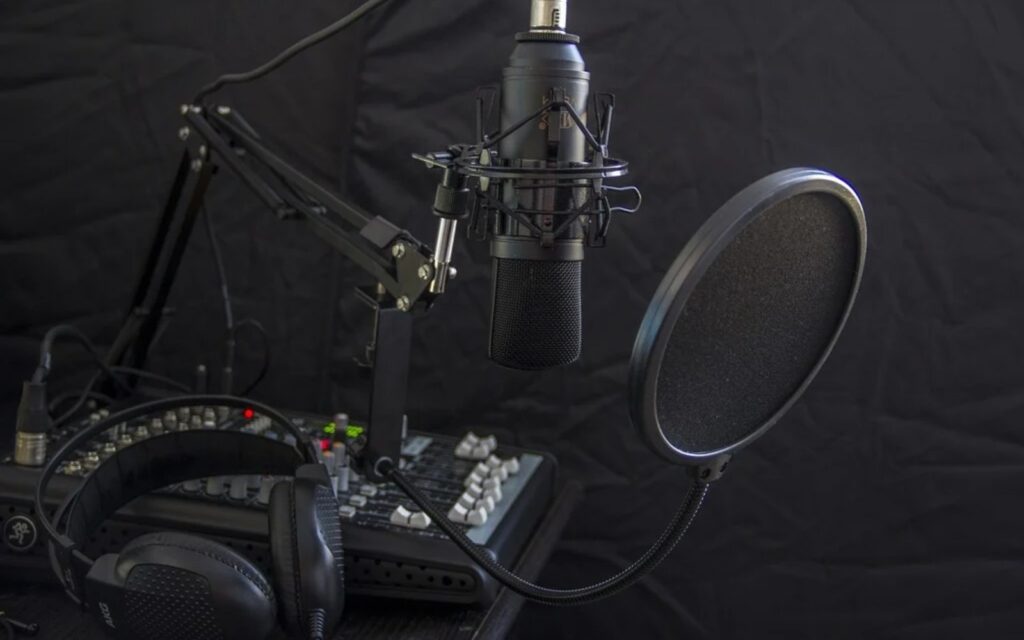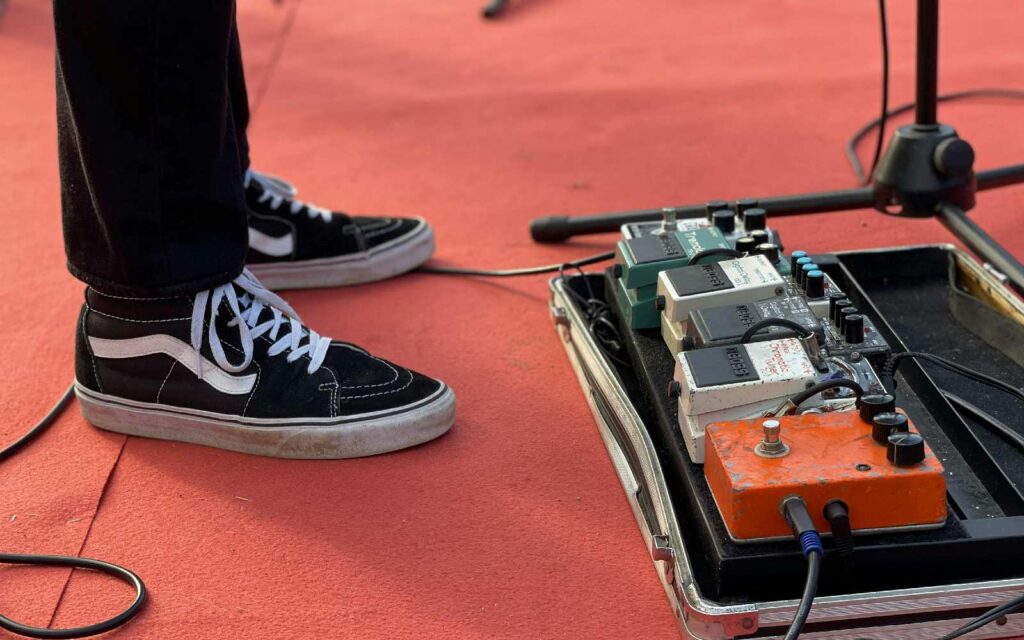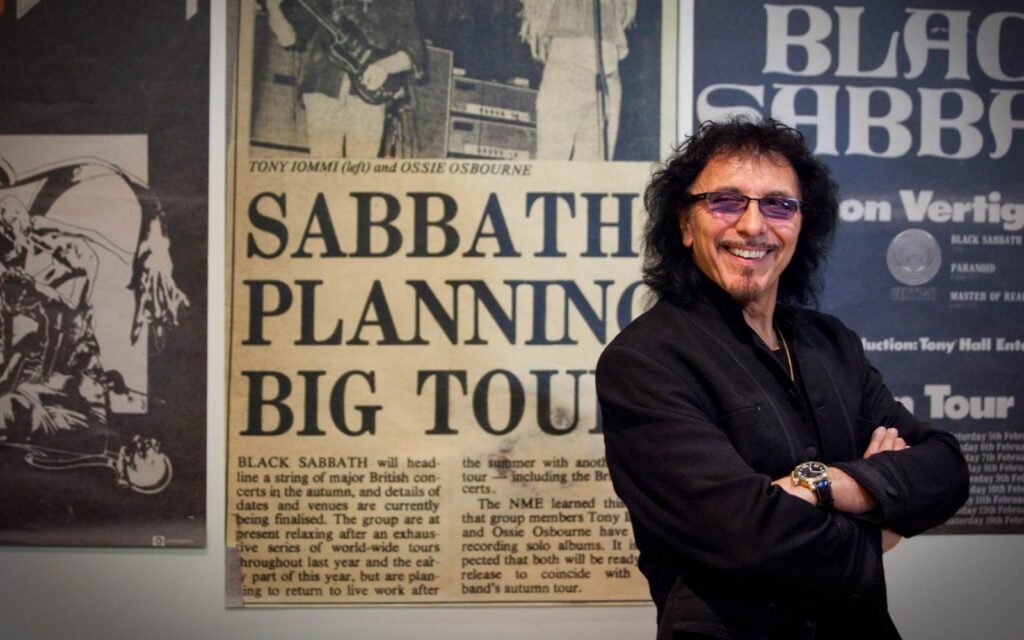Muse are known for pushing the boundaries for rock, indie and heavier genres, their album Absolution blending genre, influence and more.
Muse released Absolution in 2003, their third full-length and part of what helped skyrocket them to international fame. Produced with Rich Costey, Absolution featured “Time Is Running Out” and “Hysteria”, so we’re diving into a list of the gear they used to make it!
Manson 007/Black Manson
Iconoclastic singer-guitarist Matt Bellamy’s custom commissioned Manson guitars were the hefty tools of tone for Muse Absolution — most prominently used was the Manson 007, affectionately known as the ‘Black Manson’ or ‘Black Ed’. Bellamy asked Hugh Manson, chief luthier, to produce a guitar that effectively contained a whammy pedal — a task initially thought to be impossible. That was, until the development of a novel MIDI controller held in a tiny black strip above the strings, able to manipulate a whammy, or whatever you chose, via a microprocessor. The guitar’s malleable tone was used on both ends of the dynamic spectrum on ‘Falling Away With You’ and ‘Stockholm Syndrome’.
Read up on all the latest interviews, features and columns here.
1962 Gibson SG Les Paul
The only non-Manson guitar Bellamy employed on Muse Absolution was a 1962 Gibson SG, used for the tremolo frenzy of ‘Hysteria’ and ‘Time is Running Out’. The guitar is a historically atypical model as it is technically considered a Les Paul, with a fatter neck and the inclusion of tremolo, while Bellamy’s is fitted with a Roland GK2 MIDI pickup to modernise the sound of the 57’ Classic Humbuckers.
Diezel VH4
Prior to Muse Absolution Bellamy had restlessly changed his backline, switching between a Matchless, Fender Deville and Marshall stack. When preliminary recording began for ‘Butterflies and Hurricanes’ and ‘Blackout’ Bellamy happened upon the Diezel VH4, a hand-crafted German amplifier released in limited runs. The guitarist was so enamoured with the VH4’s defined high gain range he played it across the entire record.
3x Marshall DBS 7400 Head
Producer Rich Costey told Sound on Sound in 2003 bassist Chris Wolstenholme’s three amp set up was responsible for the dirty fuzz on Absolution. “One of them produces a cleaner bass tone, while the second amp largely goes through [the Electro-Harmonix Russian] Big Muff [distortion pedal],” said Costey. “Then his third amp, which is the most distorted, uses an obscure Japanese distortion pedal, which is pretty weird, expensive and apparently difficult to find. It has a real nasally tone that doesn’t necessarily make any sense on its own.”
Rocktron All Access Pedalboard Controller
Bellamy and Wolstenholme cut down Origin of Symmetry’s dizzyingly huge pedalboard to a Rocktron All Access controller, linked to a complex bank of rack-mounted effects units.
Line 6 Echo Pro, Line 6 Pod Pro
The MIDI controllable studio unit was the star of Bellamy and Wolstenholme’s racks on the Absolution tour, allowing a completely clean signal between the amp and guitar, while the Echo Pro runs parallel. The unit held 16 different effects modelled on classic delay and echo pedals, and was paired with a Line 6 Pod Pro for vocal effects live.
Pedulla Bass, Flat Black, Rosewood Neck, Single Soapbar Pickup + Candy Red, Rosewood Neck, Single Soapbar Pickup
Bassist Chris Wolstenholme particularly favoured Pedulla bass guitars for Absolution’s sessions, sticking to two unspecified flat black and candy red models, both with rosewood necks and the unusual soapbar pickups- a rare single coil with better midrange growl and tight bass response.
Fender American Standard (Blizzard Pearl)
Wolstenholme played a blizzard pearl Fender American Standard on ‘Sing for Absolution’ for the springier, muted tone. Following 2007, Fender Jazz basses have been Wolstenholme’s weapon of choice live.
Blue DW kit with matching 14×5 snare
Composite Kit: 22×18 black walnut satin Ayotte, 12×9 and 16×16 blue sparkle Tama Star classic Maple toms, 14×5 silver DW snare
Drummer Dominic Howard recorded most of Absolution on a fairly standard DW kit featuring a matching 14×5 snare (‘Apocalypse Please’, ‘Time Is Running Out’, ‘The Small Print’, ‘Thoughts of A Dying Athiest’ ‘Sing For Absolution’ and ‘Fury’), somewhat surprising considering the record’s rhythmic complexity. Otherwise, Howard used a composite kit on ‘Ruled by Secrecy’ to achieve a pared down pattering effect.
Plenty of abstract percussion is featured on Absolution, those clicks you hear on ‘Time is Running Out’ are the band’s thighs being slapped while the spinning of a wagon wheel augmented the drums. ‘Apocalypse Please’s doomsday theatrics were powered by Howard’s pounding toms- recorded in an indoor swimming pool. A cork winding machine can also be heard on the track.
Kawaii MP9500 Stage Piano
Bösendorfer Grand Piano
Steinway & Sons Piano
Yamaha CP80 Keyboard
In a 2009 video, drummer Dominic Howard told Zane Low in a video tour of their underground studio at Lake Como, Italy that a Bösendorfer Grand Piano was used to record nearly all Muse piano parts — In the Absolution mini-doco, Bellamy pounds the keys of a Steinway and Sons Grand, flinging his arms in the air with every biblical note.
On the Absolution tour, Bellamy infamously played ‘The Dalek’ — a Kawaii MP9500 Stage Piano mounted on a metal mesh podium featuring LED displays which could be synchronized to the MIDI output from the keyboard and the stage’s visuals.
MICROPHONES
RCA Type 77-DX
Shure SM7
Shure SM58
Neumann KMS 105
Producer Rich Costey told a magazine in 2003 that Bellamy liked to switch microphones from track to track on Absolution, often recording several takes with different models. On ‘The Small Print’ Bellamy used the dynamic Shure SM7, allowing him to press hard against the microphone without handling noise. ‘Endlessly’ was first recorded on an RCA 44 microphone, before opting for the retro-pill RCA Type 77-DX, reportedly to achieve a Chet Baker like sound.
Keep up with Muse here.

